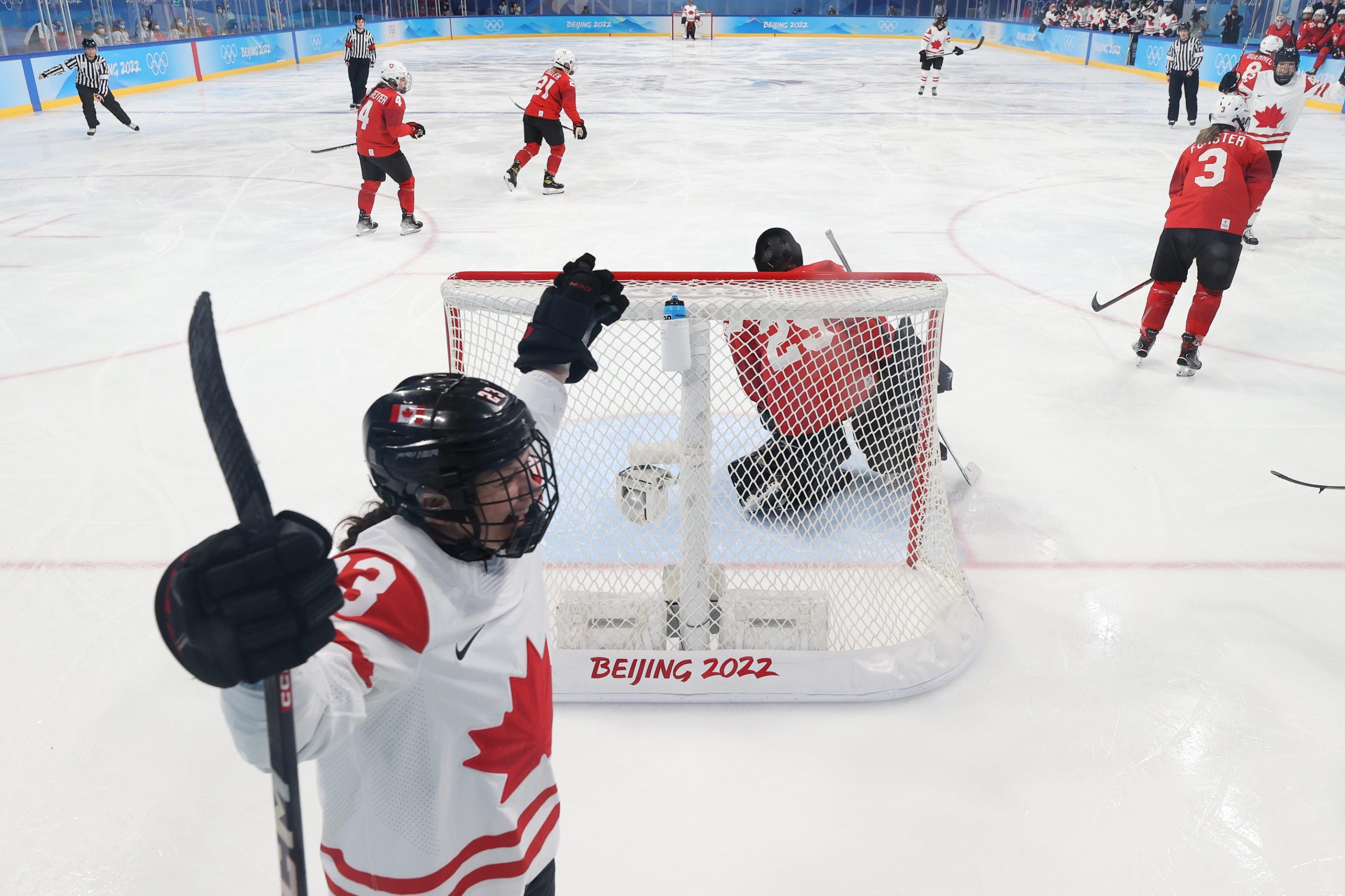For a moment, Andrea Brändli looked like trouble for the Canadians. She passed her first test of the Switzerland-Canada Olympic semifinal on Monday morning with a lightning-fast left pad save that said, I am so dialed in right now. Six minutes later, the athletic 24-year-old Swiss netminder, a star at Ohio State, still hadn't given up a goal. If you've watched much of this Team Canada in the last year, you'll recognize that as an unusually long time to keep them off the board. A suspiciously long time, even. Well, soon, the other skate dropped: Five Canadian goals scored in a little over three minutes. The Canadian women chased Brändli from the net and never looked back. Call it just another day at the office for a team that is staggeringly good, fast, and in-sync, even by Canada's high Olympic standards. The team's general manager, Gina Kingsbury, has called this iteration the best she has ever seen. "This is a group that’s completely united from top to bottom," she said. "Four years ago, I don’t think our confidence was at this level."
Canada and the U.S. will meet in the gold medal game late on Wednesday night in North America. Should Canada win—and they're the favorites—it'll be a deserved win, a testament to the real, noticeable work the program has put in to improve after some disappointments in international tournaments and subsequent leadership changes. (Canada won silver in Pyeongchang in 2018 and a bronze at the world championships in 2019; Kingsbury took over as GM in the summer of 2018 and named Troy Ryan head coach in 2020.)
The Canada we're seeing now plays an unafraid style defined by transition speed and aggression, including on the penalty kill, where they always look to generate shorthanded chances. Speed always carries risk, and the Americans showed in their group-stage game that they'll try to exploit any mistakes Canada might make in the defensive zone. But unlike with the U.S., you never get the impression this Canadian team is frustrated or tense. Their offensive zone movement has this fluid, positionless quality to it, and the players don't seem bound to a rigid system. "In the past, I think we were a little bit fearful of making mistakes," veteran defender Jocelyn Larocque said. "And honestly, this environment that Troy Ryan, our coaches, Gina Kingsbury have set out, it’s an environment where people can be creative, within structure, but people aren’t scared to make mistakes."
Canada's fourth goal against Switzerland (at the 1:05-mark here) was a perfect example of the team's movement and creativity: Winger Brianne Jenner passed from the point to linemate Sarah Nurse on the half wall, while Renata Fast, who plays defense, made her way to the net to deflect in Nurse's eventual shot. It's fun and fascinating hockey to watch, and the strategy has paid off. Canada's 54 goals in this tournament are an Olympic record, already beating their 48 goals scored in Vancouver. (The Americans have scored 28 through six games in Beijing.)
Canada's scoring comes from everywhere, too. The usual suspects, of course: Marie-Philip Poulin, Brianne Jenner, Natalie Spooner. But Ryan is rolling four lines and trusting in the roster's rookies. Superstar Sarah Fillier, just 21 years old, recorded a hat trick in Canada's quarterfinal game against Sweden. Her former Princeton teammate, 24-year-old defender Claire Thompson, opened the scoring against Switzerland and already holds the record for most points scored by a defender in an Olympic tournament, with 12. The youth movement hasn't quite arrived on the U.S. side, even though the talent is there. Head coach Joel Johnson's strategy on defense has been to keep two rookie blueliners on the bench and hope the five veterans actually allowed to play don't get too tired. In the Americans' semifinal game against Finland Monday, Lee Stecklein and Megan Keller each both logged about 27 minutes. A few of the younger American forwards, who often seem like the most engaged players on the ice and best at generating chances, also had their minutes cut in the semifinal.
Vibes don't win hockey games, sure. But gold or silver, Canada's run at these Olympics has shown why it's wrong to characterize women's hockey as stagnant at the international level. The powerhouse isn't resting on its laurels. It's been driven to become sharper, faster and scarier than it was four years ago. And that's of real service to the sport. This Team Canada asks the Americans, every other team at the tournament, and every federation, to up their game.






